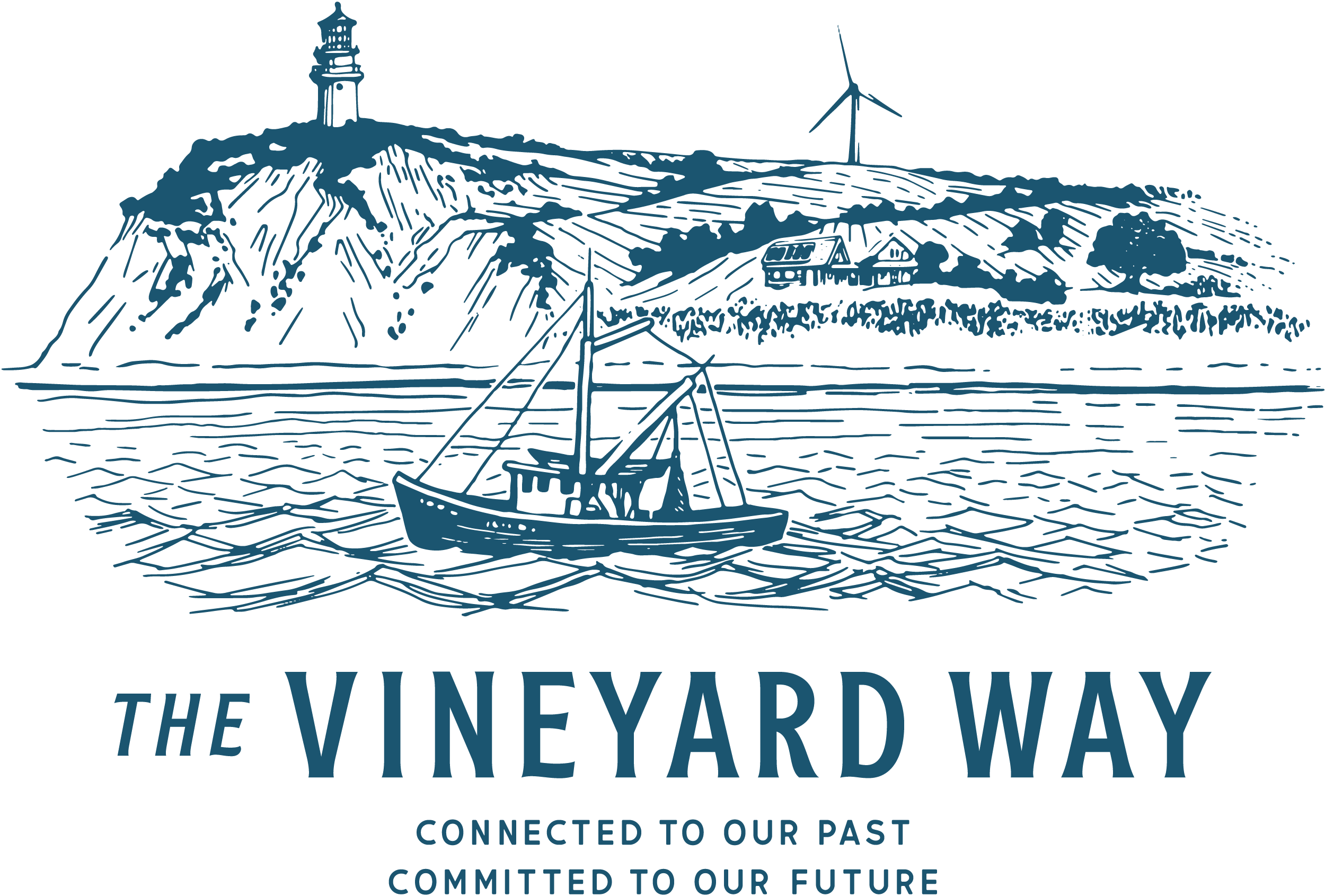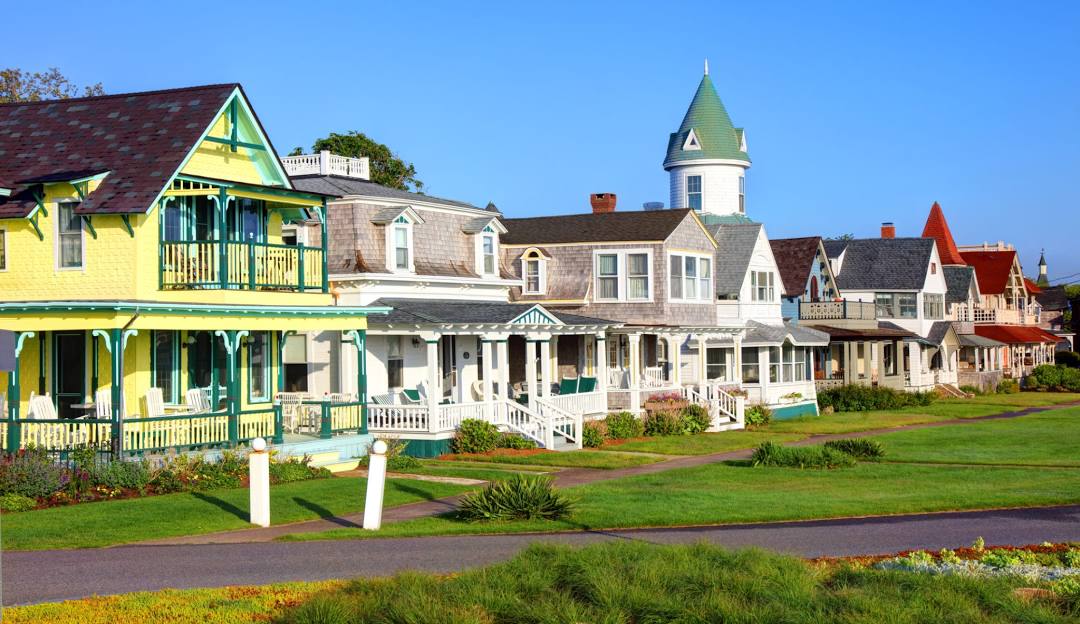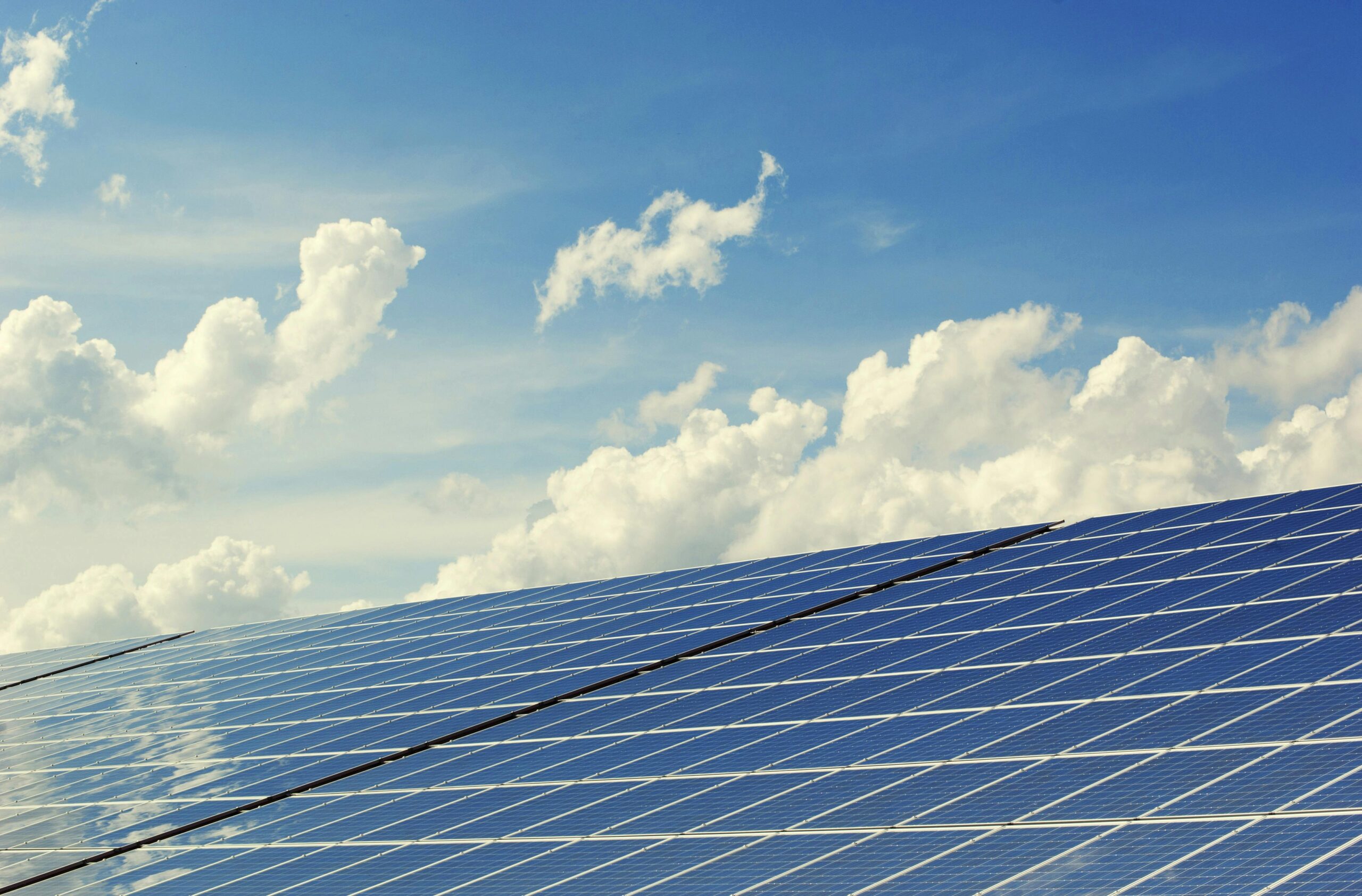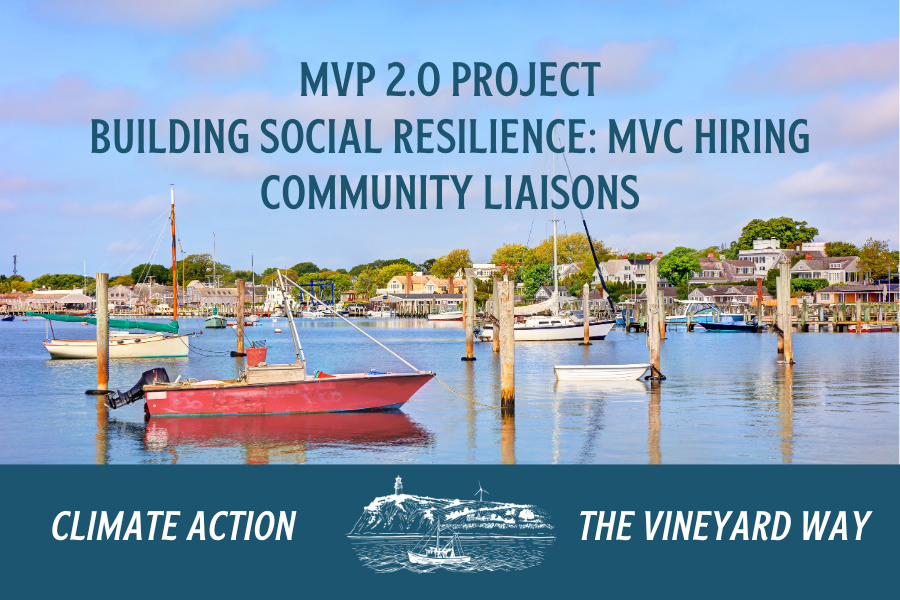
Energy Transformation
The actions in this focus area highlight the process by which our energy supply will become more reliant on renewable electric sources (solar, wind, waterpower) and less on fossil fuels. Actions also focus on building resilience of our energy supply.
Page Links
Energy Transformation Updates
🌱 Climate Action Resolutions: 5 Ways You Can Help Build a More Resilient Vineyard in 2026
Let the Sun Work for Us: The Power of Solar Energy on Martha’s Vineyard
Building Social Resilience: MVC Hiring Community Liaisons
Ways to Take Action
Challenges
The challenges associated with climate change are vast and varied, and will continue to evolve as climate change progresses. At the time of the Climate Action Plan’s creation, these challenges were at the forefront of the Energy Transformation thematic area.
Upfront Cost
NEED FOR NET-ZERO
Supply and Demand
Considerations
While climate change is a worldwide phenomenon, there are some aspects that are unique to the Martha’s Vineyard community. These considerations guided the detailed goals, objectives, and actions in the Energy Transformation thematic area.
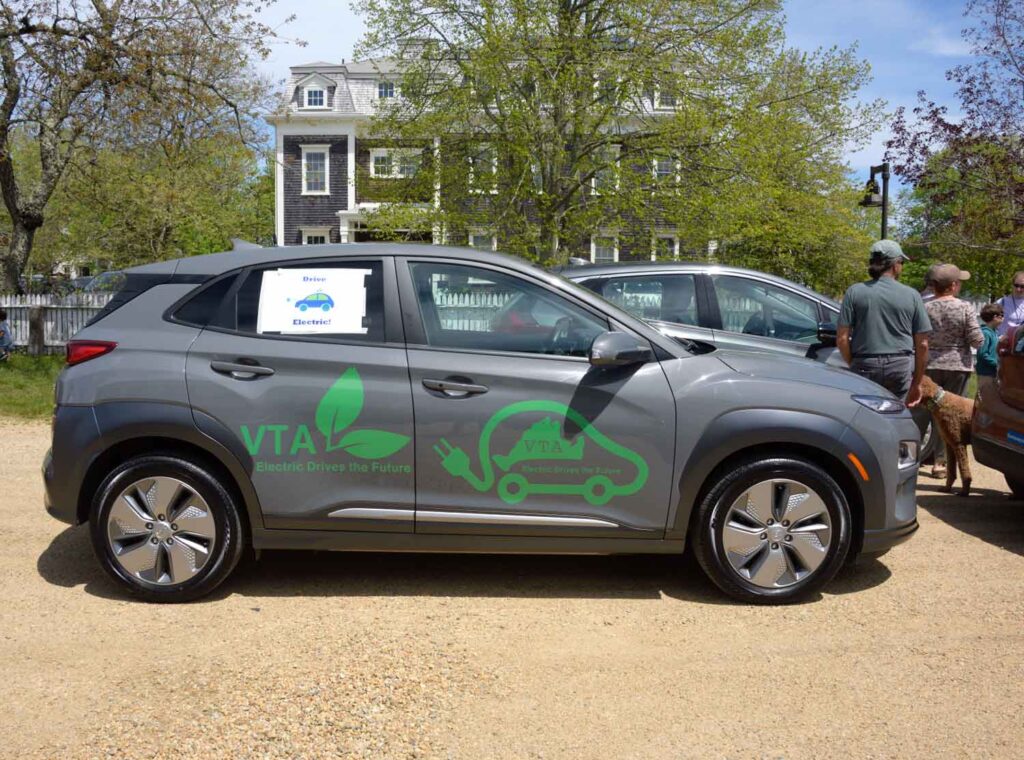
Opportunities to Reduce Emissions
A lot of everyday activities use energy. On the Island, almost half of our energy use is for transportation. The remainder of the energy we use is for heating and powering our homes and businesses.
Energy use in these sectors is almost equal to the share of greenhouse gas emissions (GHGs) they produce, meaning if we cut down on energy use and transition to clean energy sources, we will also be reducing our emissions.
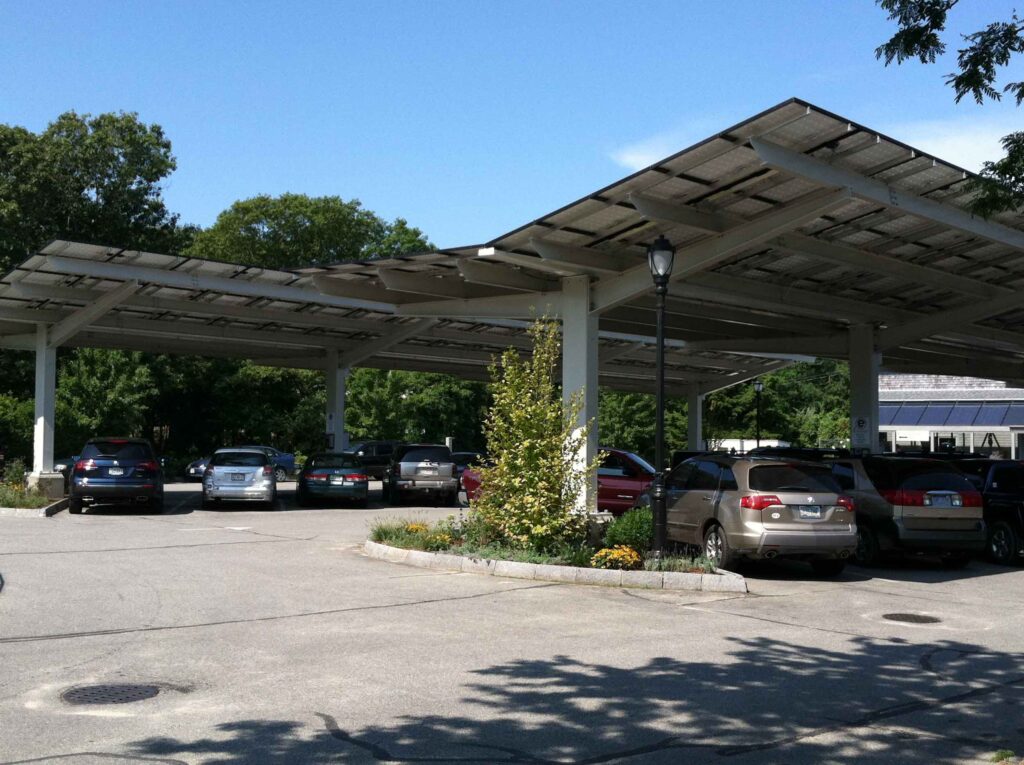
Electrification
In addition to decreasing the amount of energy we use, we also need to make sure our energy is fossil fuel free. Many of our community members are already taking steps to transition their building systems to electric. There are 6,000-7,000 air source heat pump heating systems and 2,000-3,000 heat pump hot water systems on the Island already!
Get rebates for heating and cooling upgrades and rebates for heat pump hot water systems
Pairing electric systems with a clean grid is essential. As we develop a cleaner energy grid (we already get 30% of our energy from renewable sources), our homes and businesses will be powered with a decreasing amount of fossil fuels.
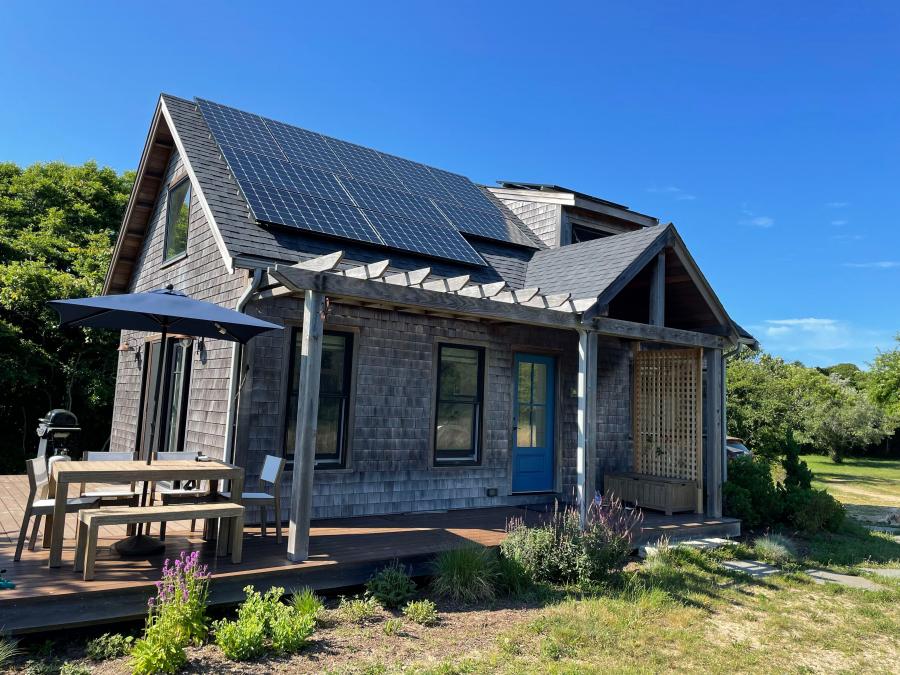
Local Solar
Did you know? Nearly 8% of electricity used in homes comes from on-Island solar generation! As more homes and businesses invest in solar, our energy grid will be more renewable – and more resilient.
Installing solar is currently not feasible for everyone, however. We need to make sure that all community members, including renters and low-income residents, have access to clean, affordable energy.
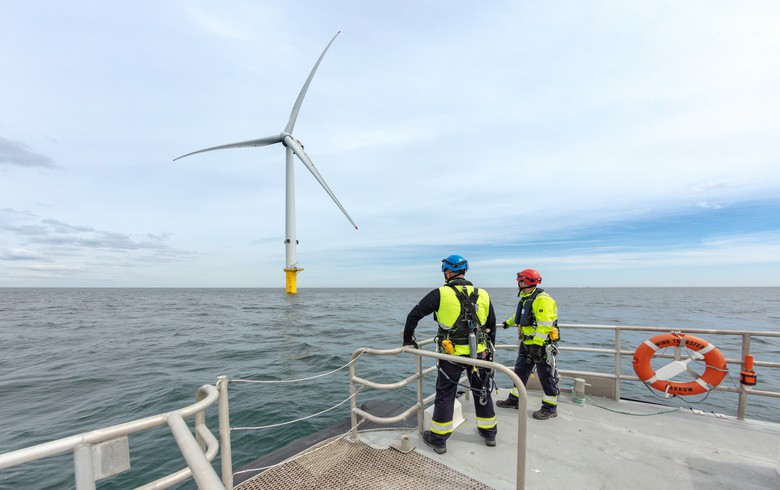
Offshore Wind
Massachusetts has a goal to deploy 5,600 MW of local offshore wind over the next decade. These turbines will produce enough clean energy to power 3 million homes – over 40% of the state’s energy demand. Offshore wind development will benefit Martha’s Vineyard by providing:
- Over $15,000,000 in infrastructure investments, including a resilient port in Vineyard Haven’s working waterfront
- 50 year-round jobs at an offshore wind operations center generating $75,000,000 in economic development over 15 years
- $25,000,000 in funding to facilitate the transition to a more resilient and equitable 100% renewable community
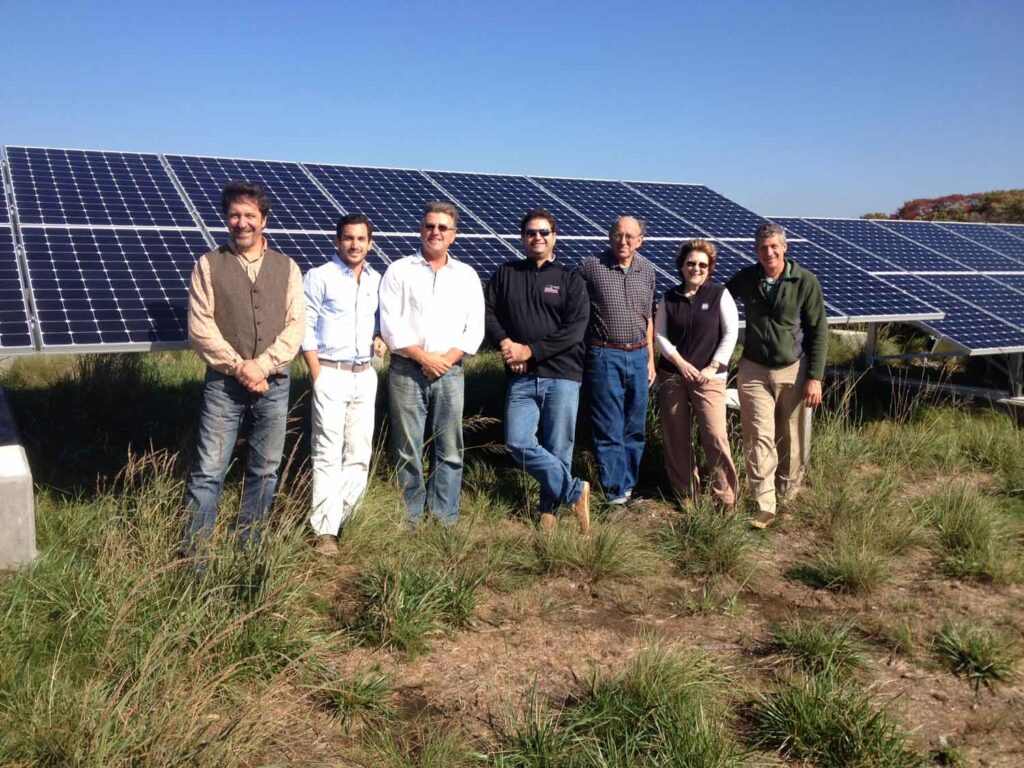
Ensuring Clean, Affordable Energy for Everyone
Equity Considerations
The up-front cost of transitioning to more efficient technologies and renewable energy sources can be a barrier to many low to medium income homes. Additionally, many Islanders rent homes or are housing-insecure and not able to make choices to transition. These barriers create inequities in the ability to receive the long-term cost-saving benefits of new technologies.
We will aim to ensure all people have access to these benefits through a variety of programs. Some of these actions are focused on improving communications and participation in Cape Light Compact programs for low to moderate income families. Other actions will take advantage of funds derived through Vineyard Wind’s Community Benefits Agreement that provides money specifically to reduce electricity costs of low-income families.
Energy Transformation Goals and Action Plan
Awaiting Resources
In Progress
Complete
Goal 1
By 2030, reduce fossil fuel use on the Island from the 2018 baseline, 50% by 2030 and 100% by 2040.
Objective 1
By 2030, increase energy performance of new and/or existing commercial and residential buildings.
Action 1.1
Support Cape Light Compact as needed in establishing a Home Energy Assessment baseline and implementation goal.
Every 3 years
Action 1.2
Evaluate and identify gaps in Home Energy Assessments, so customers receive Home Energy Reports and path to electrification.
Annually
Action 1.3
All Island towns have adopted specialized building code.
2025
Objective 2
By 2032, 55% of Island homes (10,000) will have air source heat pumps for home heating and domestic hot water.
Action 2.1
Launch an Energy Education Campaign on building energy use, including energy coaches to provide information to residents and businesses.
2023
Action 2.2
30% of all Island homes will have adopted heat pump technologies for heating and domestic hot water.
2027
Action 2.3
55 low-income residences have been converted to 100% electric heat pumps and 15 to heat pump hot water heaters, including weatherization measures and insulation improvements.
2024
Action 2.4
Increase the number of ASHP installers on the Mass Save heat pump Installer Network from four to eight.
2023
Action 2.5
All new construction and major renovations (50% or more of gross area being renovated) in all six towns are required to be 100% electric.
2025
Objective 3
By 2032, the number of newly Island-registered electric vehicles will exceed the state forecast of 46% by 10%, for a total of 56%.
Action 3.1
Launch an Energy Transition Program focused on electric vehicle adoption.
2023
Action 3.2
An Island-wide master plan of charger locations, level two and level three chargers, has been prepared and approved.
2024
Action 3.3
Establish baseline and encourage business owners, schools and hospital, to provide at least one charger for employees.
2024
Action 3.4
All new residential construction and major renovations include conduit to convenient charging location and breaker for future EV charger.
2025
Action 3.5
An analysis of feasibility of locating EV chargers at SSA parking lots is completed.
2025
Action 3.6
Incentives provided to support low/moderate income purchasing of EVs.
2026
Objective 4
By 2032, all fleet vehicles will be 100% electric.
Action 4.1
At least ten school busses are electric.
2027
Action 4.2
All delivery vehicles are electric.
2030
Objective 5
As Steamship Authority and passenger ferries are replaced, they are replaced with hybrid or electric models.
Action 5.1
Advocate for electric ferry infrastructure.
Ongoing
Objective 6
By 2030, all landscaping equipment is electric.
Action 6.1
Educate the community about benefits and opportunities of electric equipment and convert all landscaping equipment.
2030
Goal 2
Increase the percentage of our electricity use that is renewable and generated regionally (within New England).
Objective 1
By 2032, 15% of our electricity is generated by solar on Island up from the current 9%.
Action 1.1
Generate outreach to connect people and businesses with solar programs including youth who are interested in solar installation.
2023
Action 1.2
Host/Create outreach events or participate in existing events to gain support for the CAP and implementation of specific G&O of CAP Energy Group.
Ongoing
Action 1.3
Annually track Solar Generation on MV to ensure we’re meeting the objective.
Annually until 2040
Action 1.4
Increase solar and HVAC installers on MV through local courses and apprenticeships.
Ongoing
Objective 2
By 2030, increase the amount of baseline renewably generated electricity, 30% above the renewable portfolio standard (RPS) in the standard power supply.
Action 2.1
Work with CLC staff and board and CLC board reps from MV to commit to targets: 5% by 2025, 15% by 2027, 30% by 2030.
2030
Objective 3
By 2027, 10% of Island residential ratepayers are either opting into the 50% or 100% “local green” renewable generation products provided by Cape Light Compact.
Action 3.1
Get baseline number of existing participants.
By 2022
Action 3.2
Create outreach materials about “local green” option.
By 2023
Action 3.3
Work with CLC to implement an education campaign to target audiences (e.g., realtors provide info to new homeowners, electricians).
Ongoing
Objective 4
Increase participation in programs targeting low to moderate income islanders to gain the benefits from new renewable sources (through lower rates).
Action 4.1
Increase awareness and enrollment into low-income access program and increased benefits from RAP fund.
Ongoing
Action 4.2
Use Vineyard Power RAP Funding and work with CLC to apply credits.
Ongoing*
*Applied Annually or Monthly for 15 years
Objective 5
Develop a targeted program for solar and battery backup for low to moderate income rate payers.
Action 5.1
Advocate for CLC Cape and Vineyard Electrical Offering.
2022
Action 5.2
Appeal through DPU or Act of Legislation.
2024
Action 5.3
Build local Island partnerships and raise awareness to low-income rate payers.
Ongoing
Goal 3
Ensure that our energy supply is both adequate and resilient in response to the impacts of climate change.
Objective 1
By 2024, all Island towns have developed a plan based on Island-wide standards/guidelines for energy resilience in the face of extreme weather events and prolonged power failure.
Action 1.1
Develop Island-wide resilience standards/guidelines to help towns evaluate the resilient energy demands of their critical facilities.
2023
Action 1.2
Towns develop/approve a plan for resilience using generators and power from renewables with emphasis on renewables going forward.
2024
Objective 2
By 2024, we have developed a plan with Eversource as to how we can meet the Island’s resilience needs.
Action 2.1
Identify solar/battery projects and schedules that increase resilience and reduce peak energy demand; provide lists to Eversource.
2023
Action 2.2
Work with Eversource to determine and publish their plans for resilience support.
2023
Action 2.3
There is an organization created specifically to work with Eversource to guide the plan and monitor progress.
2024
Objective 3
From 2023 on, aid the implementation of the Stretch Code and its future iterations to ensure new builds are increasingly resilient to the impacts of climate change.
Action 3.1
Aid the implementation of the Stretch Code and its future iterations to ensure that new builds are increasingly efficient and resilient to the impacts of climate change.
2024
Action 3.2
Training on the Stretch Code modifications and new CLC incentives are provided for architects and contractors.
2024
Action 3.3
Building inspectors are working together to ensure that all are using the same metrics.
2024
Objective 4
By 2030, all municipalities and regional entities have incorporated microgrid technology to service their critical facilities.
Action 4.1
Identify municipal facilities and sites for the location of microgrids to provide Island resiliency.
2023
Action 4.2
Engineering study to identify optimal technology for microgrids of identified facilities, addresses battery safety, and site conditions.
2025
Action 4.3
Begin public procurement processes for microgrid development.
2026
Action 4.4
Install microgrids at town, county, and regional critical facilities.
2026-2030
Thematic Working Group Members
David Schwab
Richard Andre
John Guadagno
Emma Green-Beach
Brice Delhougne
Hugh Weisman
Julius Lowe
Alan Strahler
Mariel Marchand
Forrest Filler
Luke Lefeber
Kate Warner
Bill Lake
Rob Hannemann
